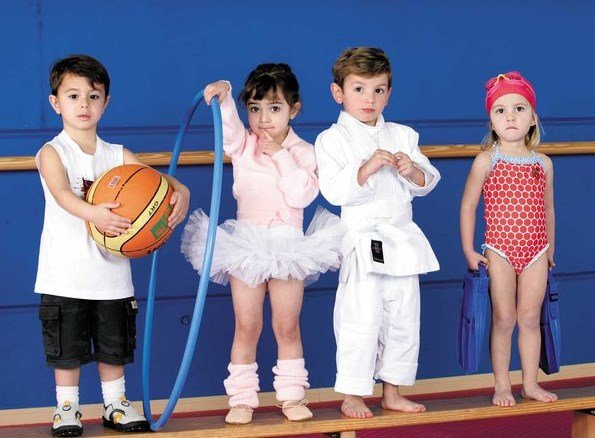The benefits of sports practice for children and adolescents go beyond the physical, helping in socialization. Take a look at some of these positive points below.

Source
Sports are not only beneficial for adults. This activity also has many uses for children.
In addition to health, exercise is useful for the social life of children later.
These are the benefits that children get from sports:

Source
Prevents childhood obesity and other diseases.
Practicing physical activities helps prevent problems like obesity, cardiovascular disease, and diabetes. Today, these problems are becoming more common due to a sedentary lifestyle.
Strengthen the immune system
Exercising will cause blood to flow to all parts of the body for improved heart, lungs, and immunity. Children who have strong resistance are not susceptible to the disease.
Practicing hand-eye coordination and balance skills
By following the coach's direction, children learn to coordinate brain work with their body. Some sports movements also aim to train to maintain body balance, thus contributing to the development of motor coordination.
Improvement of academic capacity
Children who exercise do better in school than those who do not. Participation in sport teaches children to focus on tasks and manage their time effectively.
Allows the child to learn to work in a team.
When he practices a sport, the child ends up in contact with several others, with whom he must learn to live. When working in a team, the child begins to have notions of respect for others and how to work collaboratively.

Source
Makes the child learn to deal with gains and losses.
When we play sports, we have to learn that there are days when we win and there are others when, unfortunately, we lose. The child, when participating in any sport, learns to manage these emotions, such as frustration, and to understand that defeats are part of our daily life.
Increase self-esteem
Children become more confident and happy with their performance as they improve in a particular sport. However, it is important to consider if the sport practiced is really a modality with which the child identifies himself, because, in this way, he will be happier with his results.
Teach cooperation
Children will learn all kinds of valuable social lessons through sport. Being part of a group and learning to do what is best for the team as a whole is one of the most valuable benefits of sport for children.
The cycle of friends grows
Playing sports can also be a time to make new friends. The child is often only friends with his classmates and, when presented with a sport, can increase his cycle of friendships. Also, these new friends have a common taste for the same physical activity.
Work with a purpose
Bringing the championship trophy home, winning the tournament, is the ultimate goal of children's sport. Sport provides valuable experience in solving short and long term goals. Children are taught to go through a process and they need to work hard before they get something.
In addition to health, exercise is also a fun activity. Teamwork, cheering on friends, hugging when they do something, and others will make kids commit to long-term sports. Beyond the boring hours of class, sports are a child's time to play and have fun with friends.
Reference for information
http://pansur.com/los-principales-beneficios-del-deporte-los-ninos/
https://www.parqueygrama.com/deporte-en-ninos/
https://isoucenter.es/blogs/noticias/como-mejora-el-deporte-el-desarrollo-de-los-ninos